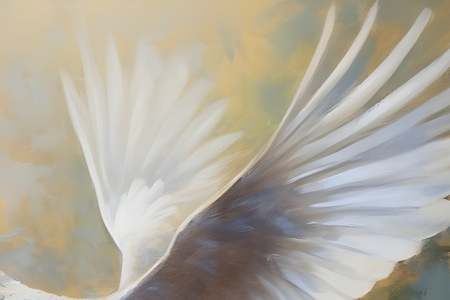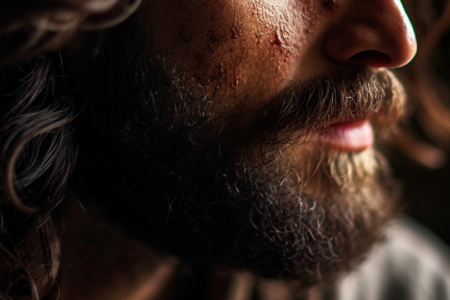Dying to Live
A brush with death in virtual reality makes people wonder if there is life after death. Scripture provides the answer.
Marcus is dead. His lifeless body lies on a hospital bed. The doctors attending him look down on his corpse. Only minutes ago they were busily monitoring his vitals when he suddenly went into cardiac arrest and flatlined. Then, something amazing happens. Marcus sits up, rises from his bed . . . and takes off his virtual reality (VR) simulator.
Marcus was a participant in “Passing Electrical Storms,” an artistic virtual show created by Australian artist Shaun Gladwell.1 “It was really cool,” Marcus said. “As you put on the goggles, you see yourself [lying] on the bed from above; so it really changed the experience from just the traditional VR, as you are able to step outside of yourself from a different perspective.”
Gladwell described the experience as “moving away from yourself and then floating off into the giant universe.” This “death show” carries some risk, as some VR participants experience anxiety and panic. Gladwell arranged for participants to stop the experience whenever they choose by pushing a button or raising their hands.
The VR death experience often causes participants to ponder their mortality. Marcus testified to that effect, admitting, “It does make you contemplate what happens after death.” King Solomon also pondered death, writing, “Better to go to the house of mourning than to go to the house of feasting, for that is the end of all men; and the living will take it to heart” (Eccl. 7:2).
Solomon knew—and Gladwell’s VR show demonstrates—that taking mortality to heart sparks a good question: Is there life after death? But most people are missing a good answer.
Is This All There Is?
Carl Sagan, scientist, astronomer, and cosmologist, was often asked about life after death. His answer was always emphatic: “As much as I want to believe that, and despite the ancient and worldwide cultural traditions that assert an afterlife, I know of nothing to suggest that it is more than wishful thinking.”2
Richard Dawkins, eminent evolutionary biologist and author of the popular book The God Delusion, answered the question while interviewed by British broadcaster Piers Morgan: “There is no afterlife for an individual. . . . I believe I [will] rot and nothing of my ego shall remain.”3
Matt Dillahunty, American atheist activist and former president of the Atheist Community of Austin, said, “It’s not about getting used to the idea of there being nothingness; that’s the scary thing, because people get it in their head, if there is no afterlife then when they die they will experience nothingness forever, and they don’t know what that means, because it’s nonsense. You won’t be experiencing anything; there will be no you to experience.”4
The number of people denying life after death is legion. The common denominator of most is their denial of God’s existence. They reason that if life comes from nothing, then death leads to nothing. But if life originates from a life-giver, the end of the story changes dramatically.
Evidence of the Afterlife
As Bible-believing Christians, we know that God through Christ is the Life-Giver. He provides hope to all who believe in Him by faith. The apostle Paul explained it this way: “Faith comes by hearing, and hearing by the word of God” (Rom. 10:17).
What is faith? The writer of Hebrews said, “Faith is the substance of things hoped for, the evidence of things not seen. For by it the elders obtained a good testimony” (11:1–2). Hebrews 11 is often called the Hall of Faith because it lists Old Testament saints whom God counted righteous because of their faith. “Without faith,” the writer concluded, “it is impossible to please Him” (v. 6).
Those without biblical faith are left without hope and cannot provide hope for others. By denying God, they conclude this life is all there is. On the other hand, people of faith “understand that the worlds were framed by the word of God, so that the things which are seen were not made of things which are visible” (v. 3); and they live in hope all the time.
Hope in Life After Death
In the summer of 1992, my friend George asked me to officiate his son Ron’s funeral. Ron had been a prodigal similar to the son in Luke 15; and just like that son, he had returned to his family and faith. But then a tragic accident killed Ron at only 29 years of age. I asked George what he wanted me to say, especially considering Ron died so young. I’ve never forgotten his answer.
“Tell them the truth,” George said. “Remind them of the truth of the gospel.” He knew where his son was—alive with Jesus. He knew because of his faith in the Lord and His Word, like King David, who wrote, “In God (I will praise His word), in the LORD (I will praise His word), in God I have put my trust; I will not be afraid” (Ps. 56:10–11).
In Psalm 61, David wrote:
Hear my cry, O God; attend to my prayer. From the end of the earth I will cry to You, when my heart is overwhelmed; lead me to the rock that is higher than I. For You have been a shelter for me, a strong tower from the enemy. I will abide in Your tabernacle forever; I will trust in the shelter of Your wings. . . . For You, O God, have heard my vows; You have given me the heritage of those who fear Your name. So I will sing praise to Your name forever (vv. 1–5, 8).
Like the saints in Hebrews 11, George and his son believed by faith.
This spring, George’s daughter Beth called to tell me her 86-year-old father had passed away. She wondered if I would speak at his memorial service. This time I didn’t need to ask what to say. I simply used the advice George gave me 30 years earlier. I shared the truth of the gospel and the fact that George was now with his son in heaven.
So, while it is now possible to experience a VR death and live to tell about it, it won’t provide any answers about what comes next. When asked about life after death, philosopher Sam Harris said, “This concept of the afterlife really functions as a substitute for wisdom.” Yet, when pressed to answer if there is life after death, Harris admitted, “We don’t know what happens after death. . . . I don’t think anyone does know. . . . I don’t know what I believe about death.”5
Well, King David knew, Ron knew, George knew, and I know—there is life after death. The truth is so simple yet so profound: “For God so loved the world that He gave His only begotten Son, that whoever believes in Him should not perish but have everlasting life” (Jn. 3:16).
ENDNOTES
-
- Jane Herz, “You can now experience how death feels through virtual reality,” New York Post, March 27, 2023 (nypost.com/2023/03/27/you-can-now-experience-how-death-feels-through-virtual-reality).
- Carl Sagan, Billions & Billions: Thoughts on Life and Death at the Brink of the Millennium, cited on goodreads.com (tinyurl.com/CSagan-1).
- Piers Morgan Uncensored, “Richard Dawkins On What Happens When You Die,” YouTube, March 22, 2023 (youtube.com/watch?v=-YXia0SsK84).
- Atheistsplaining, “Matt Dillahunty on ‘Nothingness after death,’” Reddit, October 2, 2021 (tinyurl.com/NothingnessAfterDeath).
- Big Think, “Sam Harris: On Death | Big Think,” YouTube, June 2, 2011 (youtube.com/watch?v=d_Uahu9XNzU).








